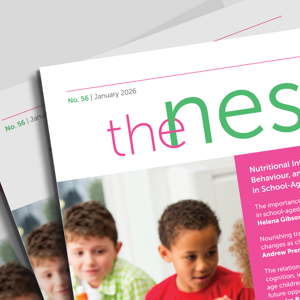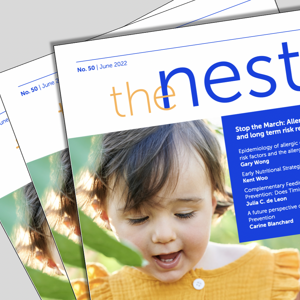The Nest

The Nest 56: Nutritional Influences on Brain, Behaviour, and Growth Trajectories in School‐Age Children

The Nest 55: Empowering Mothers: The Interplay of Nutrition, Microbiome, and Long‑Term Health

The Nest 54: Inadequate feeding practices in childhood and long term impact

The Nest 52: The microbiome and synergies in the gut

The Nest 51: Navigating Nutrition in Preterm Births: Prevention and Support

The Nest 50: Stop the March: Allergy prevention and long term risk reduction

The Nest 49: Nourishing the growth and development of toddlers

The Nest 48: The role of nutrition in the development of early gut microbiome for lifelong health

The Nest 46: Functional Gastrointestinal disorders in Infants

The Nest 45: Nutrition in Toddlerhood: Challenges and Opportunities

The Nest 44: Pro-, Pre-, and Synbiotics: Myths and Facts

The Nest 43: Prevention of Lactational Mastitis for a Successful Breastfeeding

The Nest 42: Human Milk: Evolving of Nature‘s Understanding

The Nest 38: Protein in Infant Feeding - The Process of Understanding

